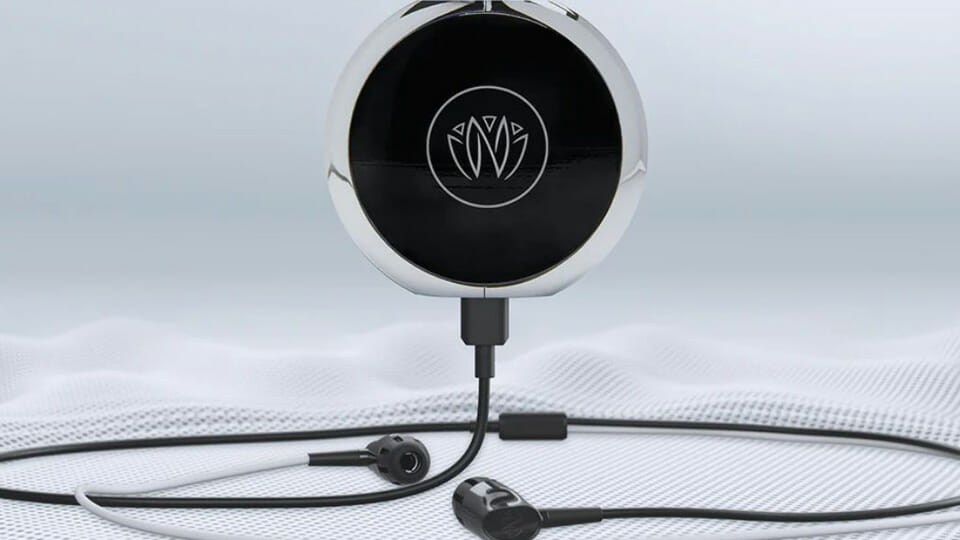Notre Dame battles rising teen suicides with earbud device, $4M grant
Subscriber Benefit
As a subscriber you can listen to articles at work, in the car, or while you work out. Subscribe Now
Suicides are climbing faster among young people than adults, triggering alarm bells that “what we’re doing isn’t working,” says University of Notre Dame psychologist Dr. Theodore Beauchaine. He’s co-leading a mission to reinvent teen suicide prevention efforts and using a $4 million grant to power that change.
About 200 teens in the South Bend region will be the first adolescents in the country to try a high-tech earbud that stimulates a nerve connected to emotion regulation. It’s one of two new prevention tools aimed at improving prevention—an area desperate for a breakthrough.
“If one has heart disease, you don’t wait until they have a first heart attack to intervene; we can identify heart attack risk…beforehand and try to prevent that by changing lifestyle. Turns out that suicide prevention is similar to that,” says Beauchaine, who is the William K. Warren Foundation Professor of Psychology. “We can identify risk…beforehand, and that’s the time to intervene.”
Beauchaine says the suicide rate among African Americans, which has traditionally been much lower, is also seeing big increases, “so all kinds of indicators are moving in the wrong direction.” The $4 million award is part of the National Institute of Health’s High-Risk, High-Reward Research program, “which means if it works, it’s a breakthrough, but if it doesn’t work, it’s not a surprise,” says Beauchaine.
The current standard intervention for teens is in-person therapy, but a shortage of mental health providers means adolescents in rural and urban settings are especially hard to reach. Therapy is also expensive and impractical for young people in underserved areas who need it most, “so we have to figure out ways to get the prevention programs to the people who need them.”
About 200 teens in the South Bend area will soon begin testing two new tools to prevent suicide. The first is transcutaneous vagus nerve stimulation that’s delivered through earbuds, because a branch of the vagus nerve runs through the ear.
“[Vagus nerve stimulation] alters brain activity in regions that are critical to emotion regulation and self-regulation,” says Beauchaine. “There’s a whole bunch of work showing effectiveness for treatment-resistant depression; there’s one study in adults that shows reduced suicide risk five years out, so we’re the first to use it for suicide prevention with adolescents.”
The teens will use the pocket device, which plays music simultaneously, for about 25 minutes each day. The earbuds also measure heart rate variability, which is evidence that the vagus nerve is changing in its function.
Beauchaine and the study’s other psychologist, Notre Dame’s William J. Shaw Center for Children and Families Professor of Psychology Dr. Kristin Valentino, are also teaming up with computer experts at the university to create and test a smart phone app. The goal of the app is to connect teens who are experiencing similar struggles to reduce social isolation, which Beauchaine says “is an enormous risk for suicide.”
Beauchaine says a key focus of the study is to “meet adolescents where they are,” and teens “much prefer digital delivery on their devices.”
“The goal is to deliver the interventions in activities that almost all adolescents engage in,” says Beauchaine. “If you think about traditional therapy, it’s anything but that; you make them stop all of their activities that they engage in and go see the therapist. Almost all of them hate to do it, and therefore, attendance is low. We’re trying to get around that strategically.”
The technology, Beauchaine said, will be available at a lower cost, which is important for scalability.
“It doesn’t make any sense to invent an intervention that costs $10,000 to deliver,” he said. “The device that we’re using $400, which is not cheap but certainly coverable by insurance, and it can be used anywhere.”
The study is part of the Notre Dame Suicide Prevention Initiative, launched just one year ago and led by Beauchaine, who came to the university to launch the initiative and shift the focus of his career specifically to suicide.
“One primary goal [of the initiative] is to increase availability of services to South Bend and the surrounding communities. We have an enormous shortfall here of qualified mental health professionals,” says Beauchaine. “To the extent that Notre Dame can serve both the research mission—which we’re doing with the grant—and provide more services locally, it’s incumbent upon us to do that.”
Beauchaine says the treatment development pipeline in the U.S. is built on a drug model and takes about 15 years, but the grant fast forwards the process to five years.
“Our argument in this award was there’s no reason we have to be restricted to a drug development model when kids are dying. It’s really rewarding to get a grant in which we’ll be able to determine [if new prevention methods work] within five years,” says Beauchaine. “If I bring something to the table, then I’ll feel good about that, as opposed to treating ADHD or something—and I did a bunch of ADHD work. Yes, that’s important, but saving lives is a step above that.”
